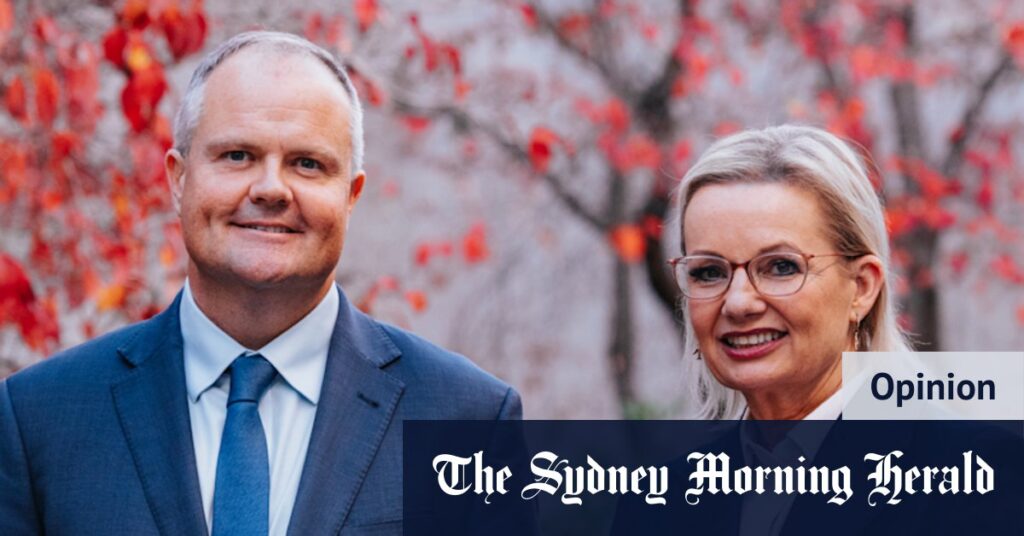As Sussan Ley and Ted O’Brien begin rebuilding a shattered Liberal Party, the right lessons must be learned from the party’s devastating loss. After its defeat in 2022, the necessary, difficult discussions were discouraged in the name of party unity. There can be no excuse for avoiding them this time.
Liberal Party leader Sussan Ley and her deputy, Ted O’Brien.Credit: James Brickwood.
While the election was a triumph for Labor, the outcome had more to do with Liberal failures than Labor achievements. More than half the population told pollsters they did not believe the government deserved to be re-elected. Liberals cannot be content just to blame a mistake-ridden campaign; the seeds of defeat were sown in the three years before. They included poor policy choices, misreading the result of the Voice referendum, gratuitously offending large sections of the electorate and an overbearing leader’s office that blindsided shadow ministers.
Peter Dutton was not the worst leader the Liberal Party has ever had – I can think of at least three other candidates for that sorry distinction – but he was certainly the most unsuccessful. You don’t suffer a defeat of that magnitude without getting a lot of things wrong. Just as Campbell Newman stands as a negative role model for David Crisafulli of what not to do, there is much that Ley can learn from her predecessor’s mistakes.
One striking deficiency was the failure to develop a clear, compelling vision of what the Liberal Party stands for. Missing was the overarching philosophy that links individual policies into a coherent whole, providing both underlying unity to specific policy narratives, and distinguishing the Liberal world view from that of Labor. The “vision thing” is sometimes derided by members of the party’s populist right, who wear their anti-intellectualism with pride. Now the electoral cost of failing to offer a clear explanation of the party’s values is plain to see.
This is peculiarly the responsibility of the leader. As David Kemp, the Liberal Party’s esteemed theorist for decades, argued in his important article “A Leader and a Philosophy”, the key role of the leader is to be interpreter and exponent of the party’s values. That role is even more important when the party is in opposition, because that is when it must re-energise its supporters around its core beliefs. You can’t persuade people to keep the faith if you can’t articulate what the faith is.
Loading
“The issues of leadership and philosophy are inseparable,” wrote Kemp, “for the effective leadership of an opposition party requires authority, and leadership in the restatement of the [party’s] basic guiding principles … is an important source of that authority.”
Dutton was not much given to philosophical reflection; he is a fighter, not a thinker. Political parties need to be led by fighters – particularly when in opposition. But they need to be led by thinkers too.
That is even more important for the Liberal Party than for the other major parties, because it is a party primarily defined by its values. Labor has values too, of course, but it is the structure of the trade union movement that binds and sustains it. The National Party’s raison d’etre is to advocate for rural and regional interests. Alone among the big parties, it is the Liberal Party that is held together by values, not industrial or sectoral interests. As Kemp argued, it rests upon the leader to define and articulate those values.
Read the full article here
